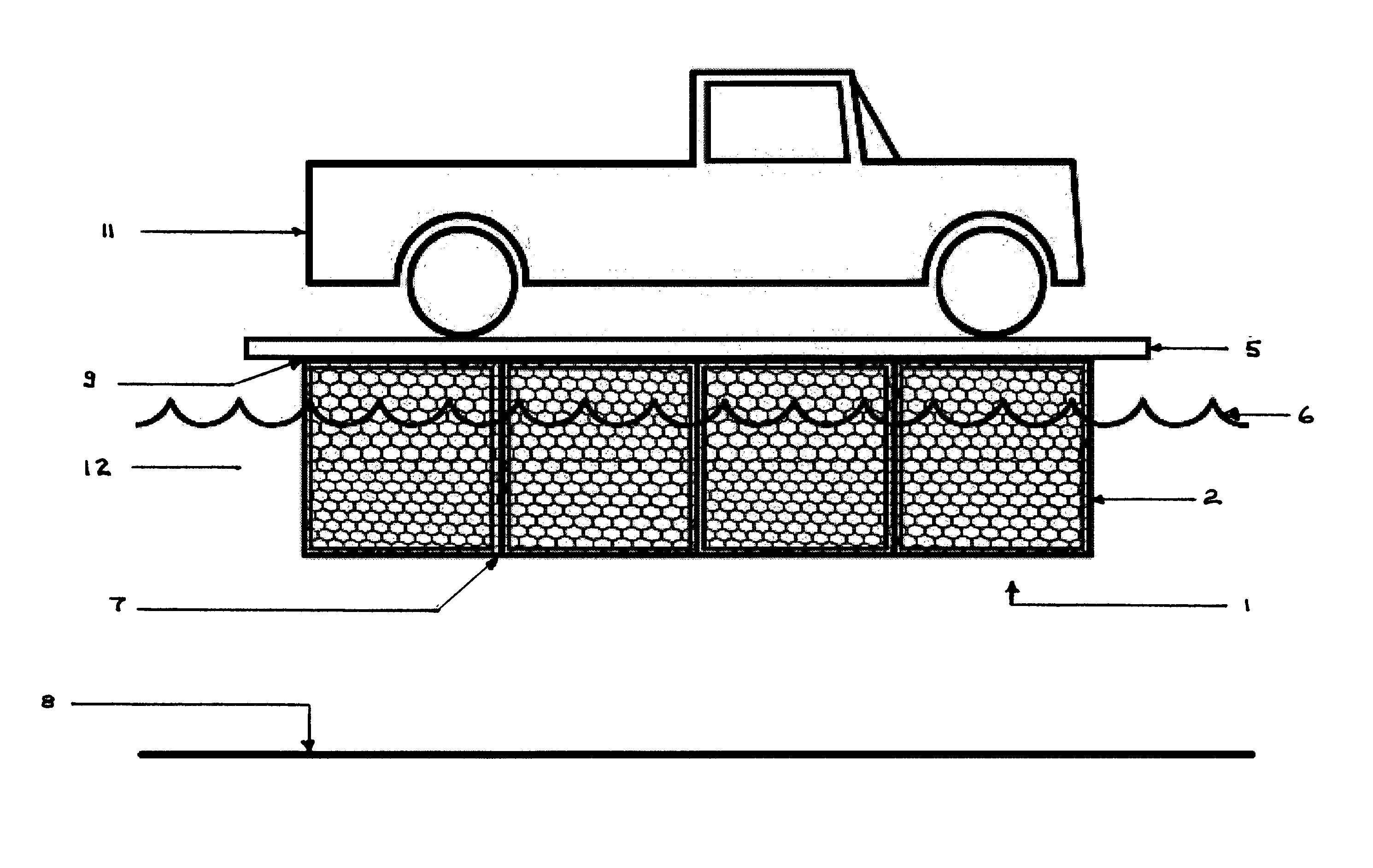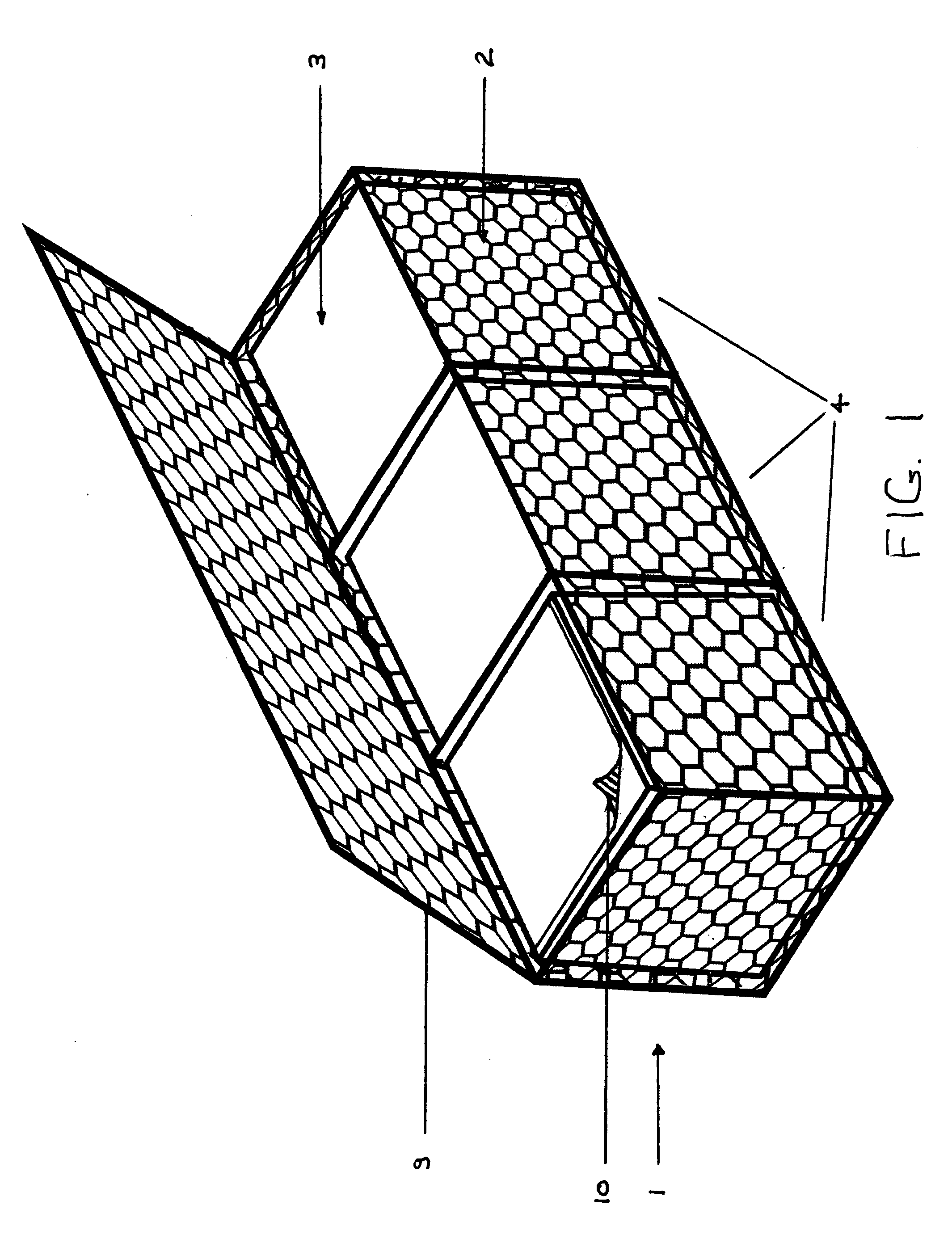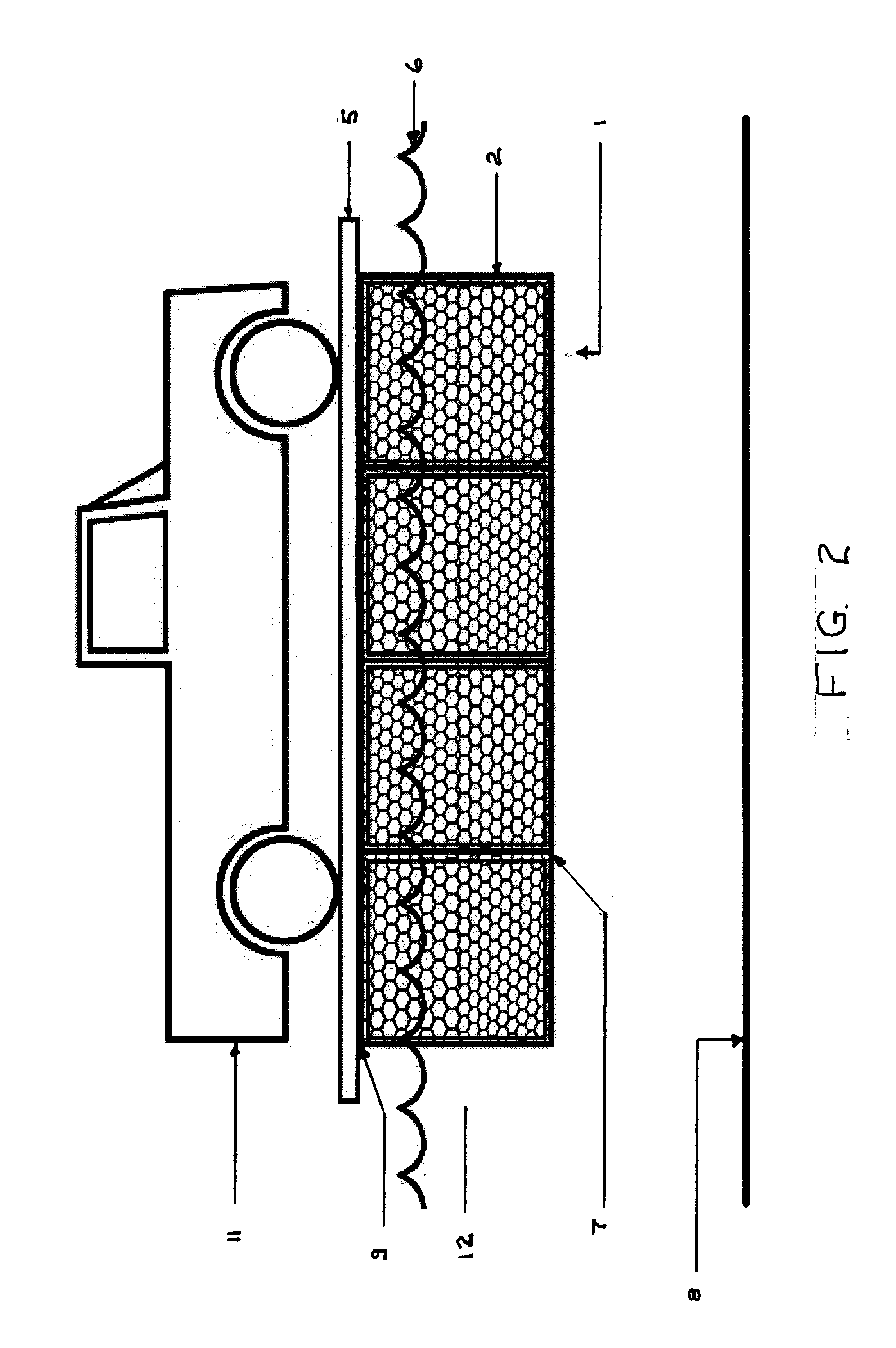Temporary platform or roadway and method of assembling same
a technology of a platform or a roadway, which is applied in the direction of rafts, vessels, ways, etc., can solve the problems of inability to remove 100%, each of the previous solutions is undesirable, and the filling material is often undesirabl
- Summary
- Abstract
- Description
- Claims
- Application Information
AI Technical Summary
Benefits of technology
Problems solved by technology
Method used
Image
Examples
Embodiment Construction
[0017] Referring now to the drawings, FIG. 1 illustrates a support component 1 formed in accordance with the present invention. As shown in the figure, the support component 1 comprises a gabion container 2 with a plurality of compartments 4. In a preferred embodiment, the gabion container 2 is composed of polyvinylchloride (pvc) coated wire mesh, although such pvc coating is not necessary to the invention. Further, the gabion container 2 is typically a wire Reno mattress style gabion basket that is approximately three feet wide by twelve feet long by one foot thick.
[0018] In each compartment 4, a filler material 3 is optionally fitted to the dimensions of the compartment 4. The filler material 3 is optionally comprised of a buoyant material such as two-pound density expanded polystyrene (EPS) foam. If buoyancy is not required, the filler material 3 could be made of hay or some other like material. To reduce the possibility of contamination of the environment, the filler material 3 ...
PUM
| Property | Measurement | Unit |
|---|---|---|
| weight | aaaaa | aaaaa |
| weight | aaaaa | aaaaa |
| size | aaaaa | aaaaa |
Abstract
Description
Claims
Application Information
 Login to View More
Login to View More - R&D
- Intellectual Property
- Life Sciences
- Materials
- Tech Scout
- Unparalleled Data Quality
- Higher Quality Content
- 60% Fewer Hallucinations
Browse by: Latest US Patents, China's latest patents, Technical Efficacy Thesaurus, Application Domain, Technology Topic, Popular Technical Reports.
© 2025 PatSnap. All rights reserved.Legal|Privacy policy|Modern Slavery Act Transparency Statement|Sitemap|About US| Contact US: help@patsnap.com



